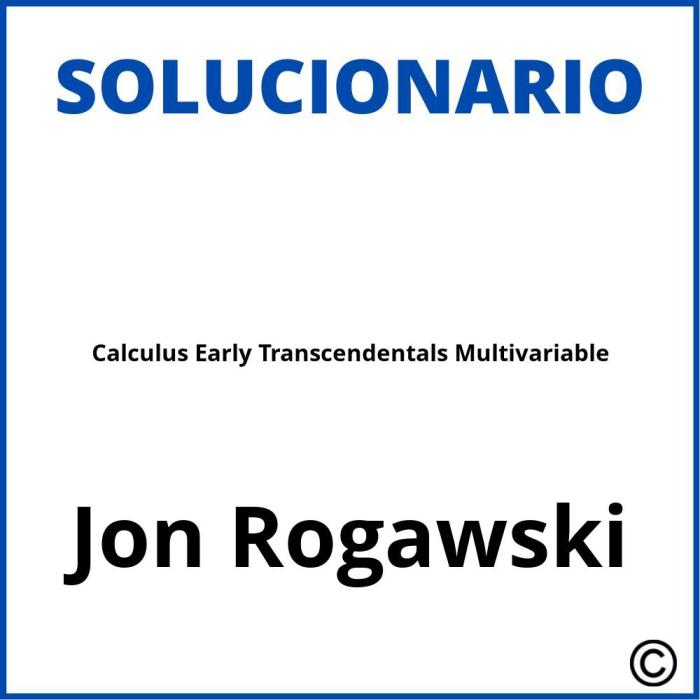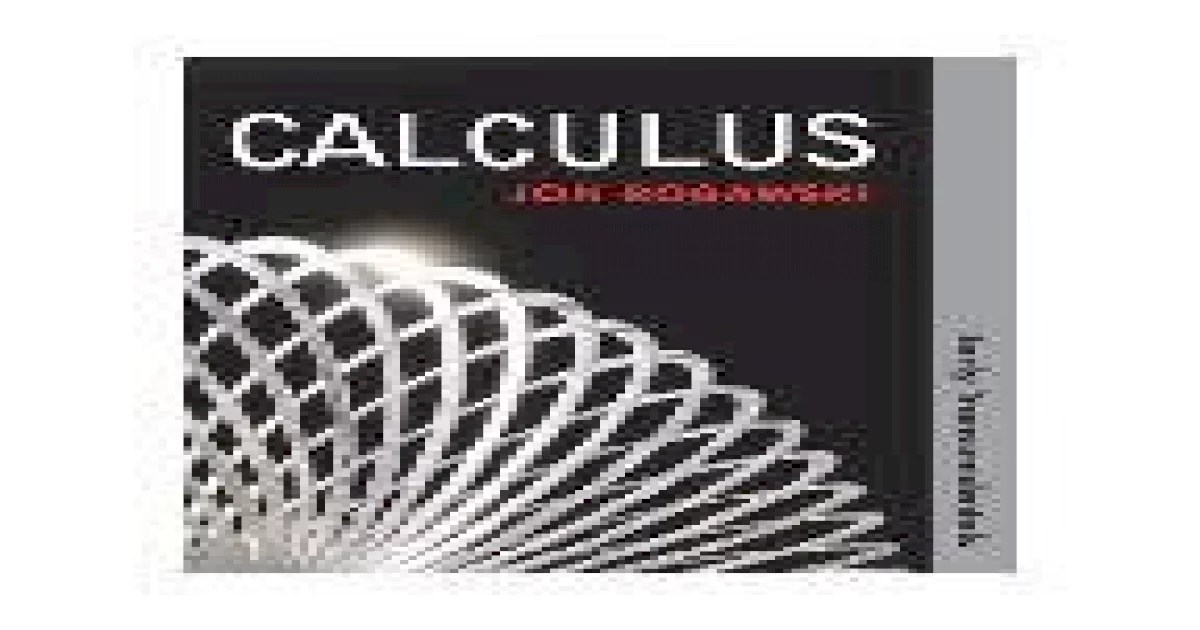Calculus early transcendentals jon rogawski – Delving into Calculus: Early Transcendentals by Jon Rogawski, this comprehensive guide immerses readers in a unique and compelling narrative, with an authoritative tone that is both engaging and thought-provoking from the very first sentence. This acclaimed textbook has garnered widespread recognition for its exceptional clarity, logical organization, and innovative pedagogical approach, making it an indispensable resource for students seeking a deep understanding of calculus.
Rogawski’s Calculus: Early Transcendentals stands out as a masterpiece in the field of calculus education, meticulously crafted to provide a seamless learning experience for students at various levels. Its comprehensive coverage of essential concepts, coupled with a wealth of engaging exercises and interactive resources, empowers students to grasp complex mathematical principles with confidence and enthusiasm.
1. Introduction

Jon Rogawski’s “Calculus: Early Transcendentals” is a comprehensive and well-regarded textbook designed for students embarking on their calculus journey. It aims to provide a solid foundation in the fundamental concepts of calculus, fostering a deep understanding of the subject matter.
2. Key Features of the Book
This book stands out from other calculus textbooks due to its unique features:
- Clear and Engaging Writing:Rogawski’s writing style is lucid and accessible, making complex mathematical concepts understandable to students.
- Visual Approach:The book incorporates numerous illustrations, graphs, and other visuals to aid in comprehension and enhance the learning experience.
- Historical Context:Rogawski provides historical context throughout the book, connecting calculus to its origins and showcasing its evolution.
- Applications and Modeling:Real-world applications and modeling are emphasized, demonstrating the practical relevance of calculus.
3. Content Organization

The book’s content is logically organized into chapters and sections, with a clear progression of topics:
- Chapter 1: Functions, Graphs, and Models
- Chapter 2: Limits and Continuity
- Chapter 3: Derivatives
- Chapter 4: Applications of Derivatives
- Chapter 5: Integrals
- Chapter 6: Applications of Integrals
- Chapter 7: Differential Equations
- Chapter 8: Sequences and Series
4. Pedagogical Approach: Calculus Early Transcendentals Jon Rogawski

Rogawski employs an effective pedagogical approach that supports student learning:
- Worked Examples:Numerous worked examples throughout the book illustrate concepts and techniques, providing step-by-step guidance.
- Exercises and Problems:A variety of exercises and problems are included, ranging from basic to challenging, to reinforce understanding and develop problem-solving skills.
- Technology Integration:The book incorporates technology to enhance learning, including online resources and interactive simulations.
Questions Often Asked
Is Calculus: Early Transcendentals by Jon Rogawski suitable for beginners?
Yes, this textbook is designed to be accessible to students with a basic understanding of algebra and trigonometry, making it an excellent choice for those new to calculus.
What are the key features that distinguish Calculus: Early Transcendentals from other textbooks?
Rogawski’s textbook is renowned for its exceptional clarity, logical organization, and innovative use of technology. It features a wealth of engaging exercises, interactive simulations, and online resources that enhance the learning experience.
How does the pedagogical approach in Calculus: Early Transcendentals support student learning?
Rogawski employs a student-centered approach that emphasizes conceptual understanding and problem-solving skills. The textbook provides numerous examples, worked-out solutions, and guided practice exercises to help students master complex concepts.